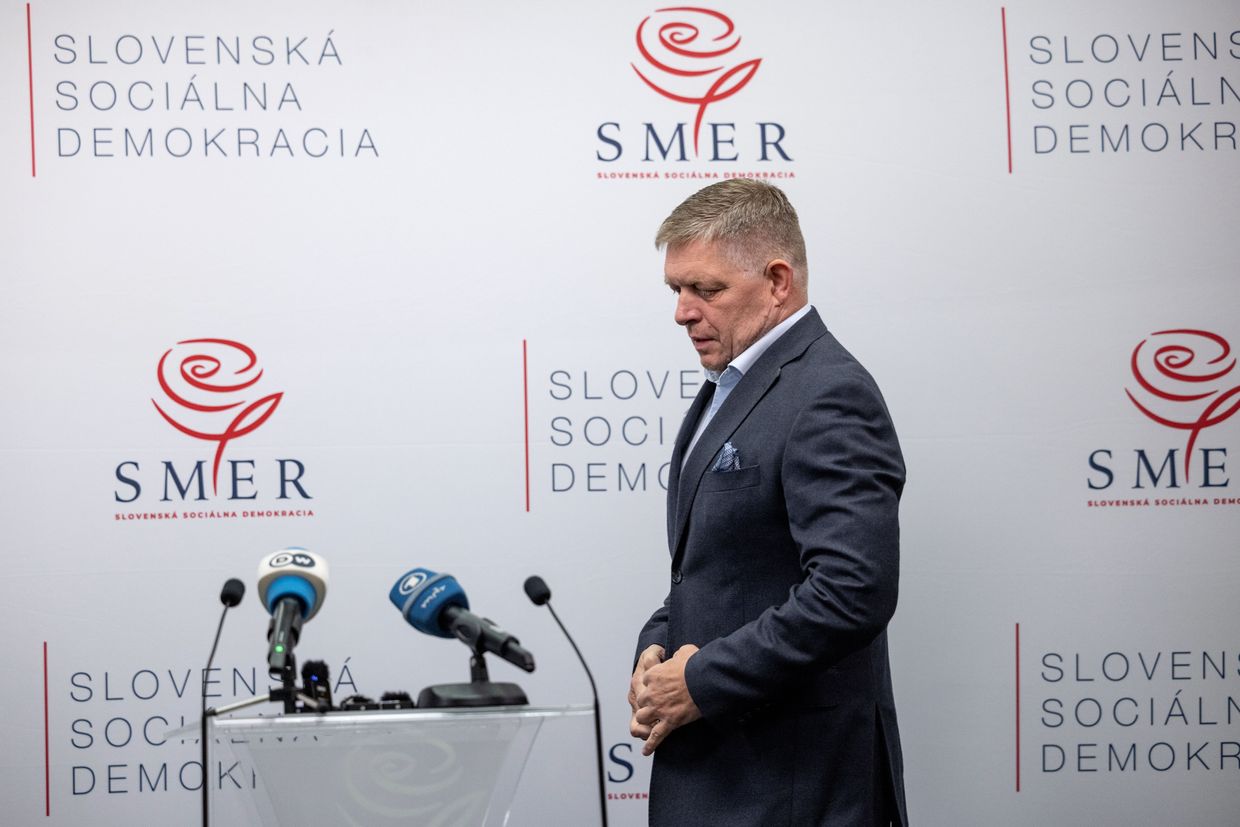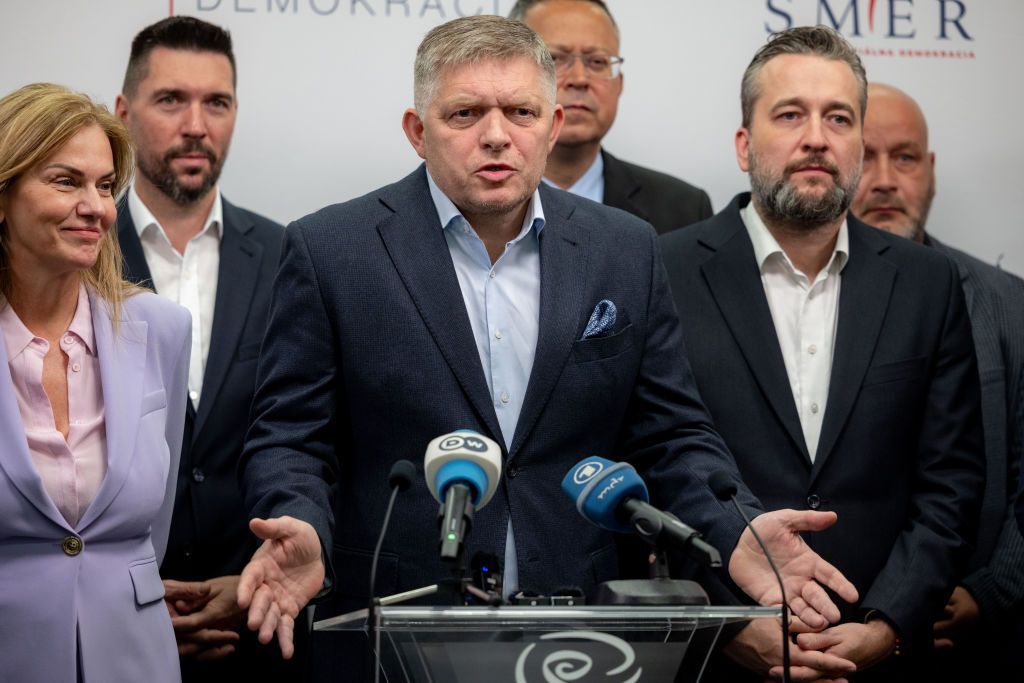Slovakia's pro-Russian SMER party to lead foreign affairs, defense in new government.
Leaders of the left-populist SMER, social-democratic HLAS, and the ultranationalist Slovak National Party (SNS) had largely agreed on how to divide ministerial seats in the new government, Aktuality reported on Oct.
16. Robert Fico's SMER (Direction), which won the highest percentage of votes (22.9%) with a pro-Russian and socially conservative platform, is reportedly going to head defense, transport, finance, foreign affairs, justice, and agriculture departments, and Fico is to become the next prime minister. SMER's junior partner, HLAS (Voice), which ended up third in the Oct.
6 vote with 14.7%, will occupy the ministries of the interior, economy, labor, digitalization, education, health, and the position of deputy prime minister for the recovery and resilience plan and the use of EU funds. HLAS's leader, Peter Pellegrini, is also meant to chair the Slovak Parliament. The smallest of the three coalition partners, SNS with 5.6% of the votes, will reportedly be in charge of the environment, culture, and the new Ministry of Sport and Tourism, which is to be established next year.
Peter Tkacenko: Slovakia after election - If not friend, certainly not enemy of Ukraine
Robert Fico's Direction - Social Democracy (Smer) has secured victory in the latest Slovakelections with 23% of the vote. Ex-Prime Minister Fico, who expressed dissatisfaction with his country's support ofneighboring Ukraine, has an open road to a third stint as the country's prime minister. Yet,...

According to SNS's leader Andrej Danko, the layout of the new government is already agreed upon "at 80%." The parties' leaders did not reveal concrete candidates for the ministerial positions.
As Aktualne pointed out, the candidates will still have to be approved by the internal bodies of the three respective parties and by President Zuzana Caputova. Senior members of both SMER and SNS expressed anti-Ukrainian and pro-Russian positions, and Fico said Bratislava would cease providing Kyiv with military aid. Shortly after the election, in which SMER beat its liberal, pro-EU challenger Progressive Slovakia (PS), Caputova refused to back further aid for Ukraine, explaining that the result of the elections must be respected.
However, HLAS's Pellegrini said that his party, a more moderate break-away of SMER, would ensure Slovakia's foreign policy continuity. Notably, a part of the recent coalition agreement between the three political factions was a declaration that Bratislava would maintain its pro-EU, pro-NATO orientation. The three parties agreed to form a coalition government on Oct.
11, which is scheduled to replace the current Ukraine-friendly caretaker government.
Opinion: Slovak election results threaten Europe's united front Slovakia's early parliamentary elections on Sept.
30 resulted in a clear victory for pro-Kremlin politician Robert Fico and his party, SMER. While we don't know which parties will form the government, scenarios in which Fico is not the strongest party leader of the ruling coalition are not really

 Martin Fornusek
Martin Fornusek
News Editor
Martin Fornusek is a news editor at the Kyiv Independent.
He has previously worked as a news content editor at the media company Newsmatics and is a contributor to Euromaidan Press.
He also volunteers as an editor and translator at the Czech-language version of Ukrainer.
Martin studied at Masaryk University in Brno, Czechia, holding a bachelor's degree in security studies and history and a master's degree in conflict and democracy studies.